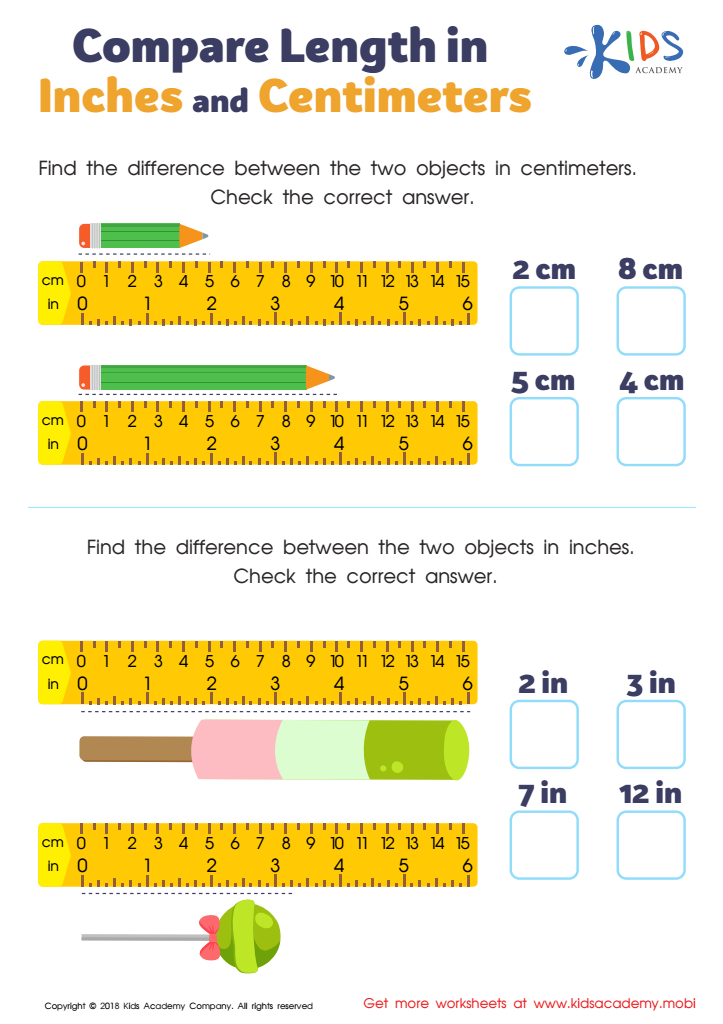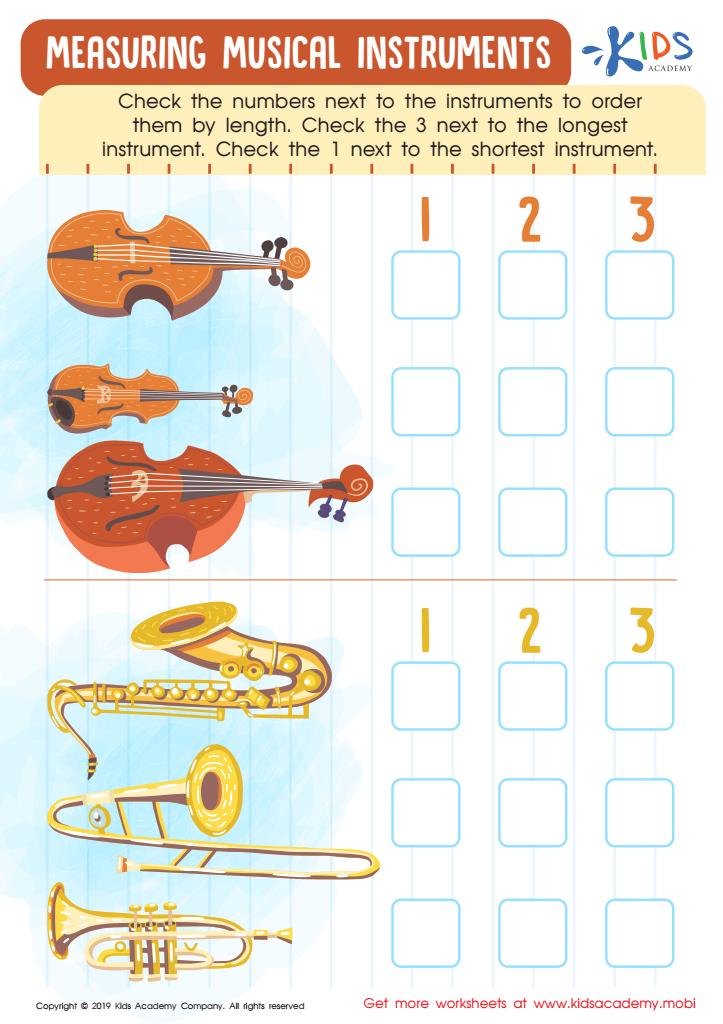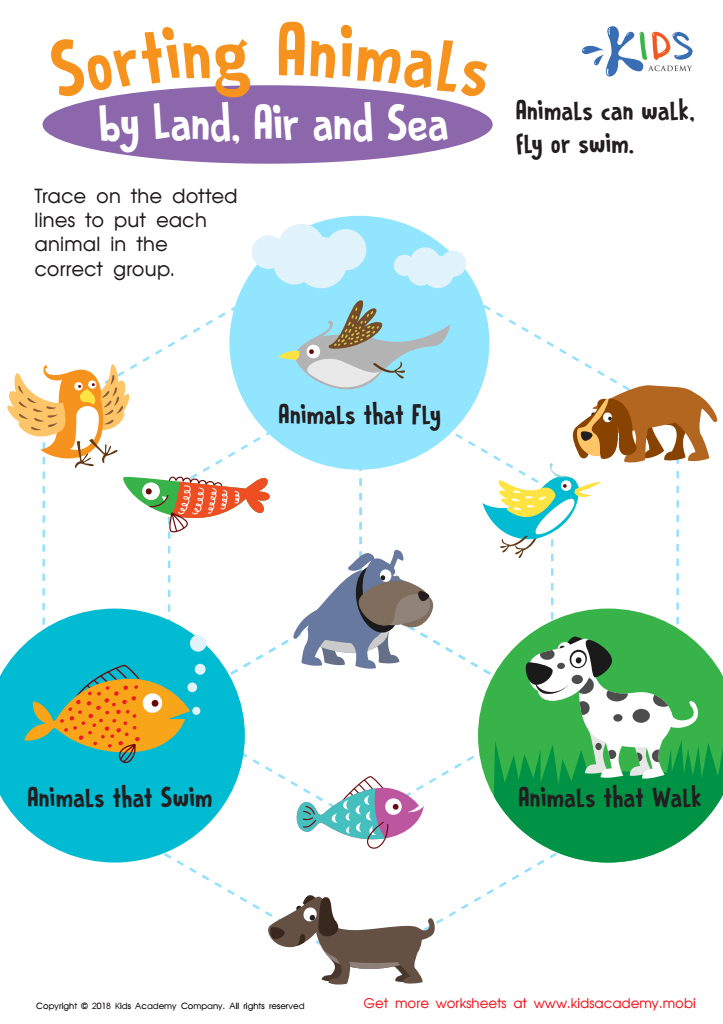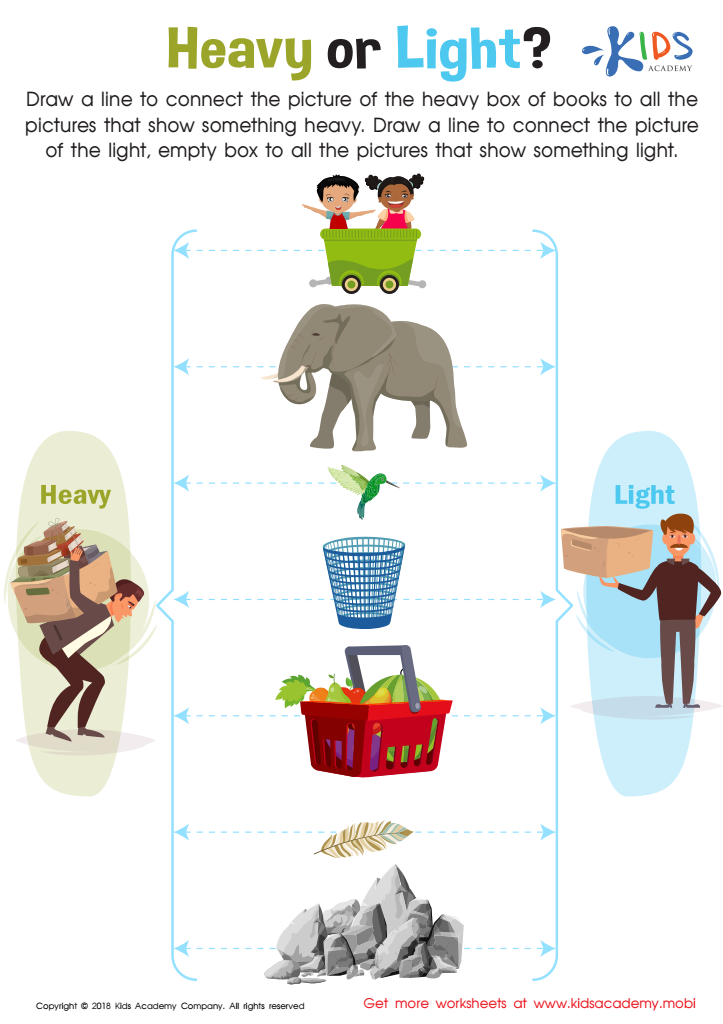Enhancing observation skills Normal Math Worksheets for Ages 3-7
5 filtered results
-
From - To
"Enhancing Observation Skills Normal Math Worksheets for Ages 3-7" are designed to engage young minds in active learning. These captivating worksheets help children develop critical observation skills while covering fundamental math concepts like counting, pattern recognition, and basic geometry. Each activity encourages kids to closely examine shapes, symbols, and patterns, fostering attention to detail and logical thinking. With vibrant visuals and age-appropriate challenges, these printables make learning fun and interactive, ensuring children build a strong mathematical foundation. Ideal for home or classroom use, these worksheets provide an excellent resource for parents and educators to support early math development.


Compare Length in Inches and Centimeters Worksheet


Pollinator Positions Worksheet


Measuring Musical Instruments Worksheet


Sorting Animals by Land, Air and Sea Worksheet


Heavy or Light? Worksheet
Enhancing observation skills in early childhood is vital because it lays the foundation for lifelong learning and cognitive development. Observation skills foster a child’s ability to notice and process details in their environment, which is essential for learning and problem-solving in math and other subjects.
For children aged 3-7, enhanced observation skills help them make sense of shapes, patterns, numbers, and the relationships between them, key components of early math understanding. For example, recognizing and categorizing different shapes or noticing patterns helps children grasp basic math concepts in a fun and intuitive way. Teachers and parents who prioritize these skills contribute to a robust foundation in mathematics, making it easier for children to tackle more complex problems as they grow.
Furthermore, strong observation skills promote curiosity and inquisitiveness, which are crucial attitudes for academic success and critical thinking. When children become keen observers, they develop better memory, attention to detail, and analytical skills. This heightened ability to notice and compare also supports language development and scientific thinking, enhancing overall educational outcomes.
In summary, by incorporating activities that sharpen observation skills through playful interaction with everyday math, parents and teachers can provide children with a strong, multi-faceted foundation for future learning and intellectual growth.
 Assign to My Students
Assign to My Students





















